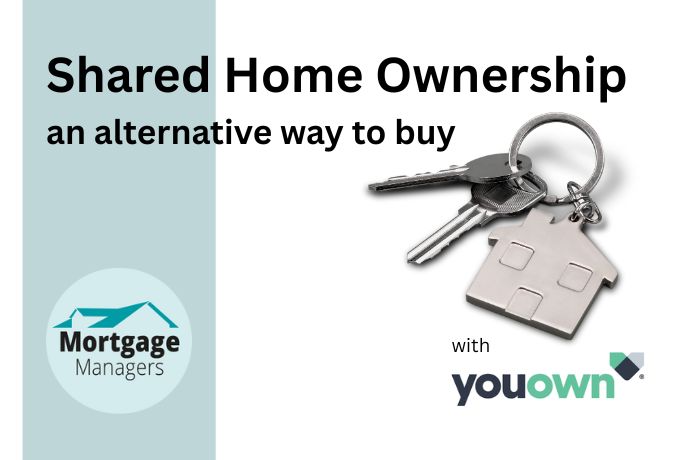Shared Home Ownership: A Smart Alternative to Traditional Buying for Young Kiwis
Are you one of many young Kiwis dreaming of owning a home but finding the traditional route just out of reach? If so, you’re not alone. The rising property prices and hefty deposits have made home ownership feel like an impossible dream for many first-time buyers in New Zealand.
But here’s the good news – shared home ownership offers a compelling alternative. This innovative approach allows you to step onto the property ladder without the financial burden that typically comes with it.
Curious about how shared ownership could work for you?
Could shared home ownership be the key to making your dream of owning a home a reality?
Key Takeaways
- Shared home ownership involves purchasing a property with multiple parties, which can include housing providers or a provider like YouOwn
- It offers an accessible entry point into the property market for those unable to afford a traditional mortgage
- Young Kiwis can build equity over time while sharing the property costs with a housing association
- This approach allows for reduced upfront costs and lower monthly payments compared to traditional buying
- Various shared ownership models are available in New Zealand, including partnerships with YouOwn and banks like SBS Bank and non-banks like Basecorp Finance
Understanding Shared Home Ownership
Shared home ownership is an innovative concept tailored for those who find traditional buying beyond their means. This arrangement allows multiple parties, often including a housing provider and the buyer, to purchase a property together. The idea is simple yet effective: you own a share of the property, while a housing association or company owns the rest. This setup significantly reduces the initial financial burden, allowing more Kiwis to take their first steps into homeownership.
For many first-time buyers, the allure of shared ownership lies in its accessibility. With the average house price in New Zealand soaring, the traditional path to buying a home seems daunting. Shared ownership acts as a stepping stone, providing a feasible way to enter the property market. By sharing the equity with a housing association, young buyers can enjoy the perks of homeownership without the hefty price tag attached to traditional methods.
In a shared ownership arrangement, you typically reside in the property as tenants, meaning you can enjoy the comforts of your own home while gradually building equity. This approach is particularly appealing to young Kiwis who see it as a way to invest in their future. Over time, you can increase your share, thus increasing your stake in the property. This incremental approach helps you manage financial commitments while aiming for full ownership eventually.
Legal advice is crucial in these situations, as ownership agreements need to be clearly defined. The process involves drafting and signing legal documents that outline each party’s responsibilities and rights. A kāinga ora relationship manager often assists in navigating these complexities, ensuring that all parties understand the financial setup and the implications of the agreement.
Prospective homebuyers considering shared ownership should take careful note of the financial considerations involved. Consulting a financial advisor can provide insights into how your household income, loans, and repayments will shape your ownership journey. With proper planning, shared home ownership can be a financially viable and rewarding path to acquiring your own residence.
The Benefits of Shared Home Ownership for Young Kiwis
Shared home ownership offers a breath of fresh air for young Kiwis eager to break free from the rental cycle. This pathway provides an affordable means of entering the property market without the need for a large deposit. The initial financial barrier is lower, making it an attractive option for first-time buyers who might otherwise struggle to save enough for a traditional home purchase.
One of the primary advantages of shared ownership is the reduction in monthly payments. Young buyers benefit from lower costs compared to conventional mortgages, making it easier to manage alongside other living expenses. This affordability allows you to maintain a comfortable lifestyle while investing in your future.
Furthermore, shared ownership provides a sense of security and belonging. You have the flexibility to increase your ownership share over time, which means you can gradually work towards full ownership as your financial situation improves. This incremental approach gives you control over your investment while enjoying the benefits of owning a home.
For many young Kiwis, the sense of community and stability that comes with shared ownership is invaluable. You gain not just a home, but a place where you can plant roots and build a life. The guidance from housing providers, such as home kāinga ora, offers a blend of independence and support, ensuring you are never navigating this journey alone.
Shared ownership also aligns with various financial goals. Utilising resources like kiwisaver funds for savings or lending can aid in the purchase process. As you manage ownership costs, a clear financial setup ensures that repayments remain within your means, allowing you to focus on building a future in your new home.
How Shared Home Ownership Works in New Zealand
In New Zealand, shared home ownership involves a partnership between prospective buyers and housing providers. This collaboration allows you to co-own a property, sharing both costs and responsibilities. The process typically begins with purchasing a percentage of the property, with the flexibility to buy more shares as your financial situation allows.
Monthly payments in shared ownership are a balanced mix of rent for the portion not owned and mortgage payments for the owned share. This setup offers a manageable financial commitment, allowing you to enjoy the benefits of homeownership without the full burden of a mortgage. Many schemes provide clear pathways to increase ownership, empowering you to maximise your investment over time.
YouOwn Helps First Home Buyers

The involvement of third-party companies like YouOwn, in partnership with banks such as SBS Bank or non-banks like Basecorp Finance, brings additional options to the table. These partnerships offer varied financial setups, enabling you to choose a model that best fits your needs and goals. Engaging with a financial advisor can further clarify how these arrangements align with your household income and long-term plans.
The journey to shared ownership also involves legal advice and documentation. Ownership agreements must be clearly defined, detailing the responsibilities and rights of each party.
With the support of a team that includes legal experts and relationship managers, you can confidently navigate this path towards owning your home.
Mortgage Managers are accredited adviser with YouOwn and the lender partners.
Don’t give up on owning your own home until you have explored all the options – including shared home ownership
Comparing Shared Home Ownership to Traditional Home Buying
When weighing shared home ownership against traditional buying, several factors come into play. One of the most significant differences is the deposit size. Shared ownership requires a smaller deposit, making it an accessible option for those with limited savings. This contrasts sharply with the traditional approach, where a larger upfront cost is often a barrier for first-time buyers.
Monthly costs in shared ownership are generally lower, providing financial relief for young buyers juggling other obligations. This model allows you to balance your budget while still investing in property. In contrast, traditional buying often involves higher monthly payments, which can strain your finances, especially if you’re just starting in your career.
The gradual equity growth in shared ownership is another appealing factor. Unlike traditional buying, where you secure full ownership from the start, shared ownership lets you increase your stake over time. This gradual approach aligns with many young Kiwis’ financial trajectories, offering a less intimidating path to full ownership.
Shared ownership’s appeal extends beyond financial aspects. Many buyers appreciate the guidance and support available from housing providers. This support contrasts with the independent nature of traditional buying, where you’re often left to navigate the complexities alone. For first-time buyers, the backing of experienced professionals can make all the difference.
Ultimately, shared ownership presents a flexible and less overwhelming option for those entering the property market for the first time. While traditional buying has its merits, shared ownership offers an alternative that aligns with the needs and circumstances of young Kiwis today. By evaluating the pros and cons of each method, you can determine which path aligns best with your financial goals and lifestyle aspirations.
Conclusion
Shared home ownership emerges as a beacon of hope for young Kiwis eager to step onto the property ladder.
By pooling resources and sharing responsibilities, this approach offers a financially feasible and supportive route to homeownership. Whether partnering with banks like SBS Bank or non-banks like Basecorp Finance, shared ownership provides options tailored to meet diverse needs and goals.
In summary, shared ownership allows you to enter the property market with a smaller deposit, enjoy lower monthly payments, and gradually increase your equity over time. It offers a blend of independence and support, empowering you to invest in your future while enjoying the security of owning a home. So, as you consider your options, ask yourself this:
If you do not have someone that can help you by owning a share of your new home, then YouOwn is a commercial option that works with both bank and non-bank lenders.
Could shared home ownership be the key to unlocking your dream of homeownership?
Talk To An Adviser Today
It’s always useful to have a discussion with an adviser who can give you a bit more information and provide details on how shared home ownership might help you into a home sooner.

Frequently Asked Questions
What is shared home ownership?
Shared home ownership is an innovative way to own a home where you purchase a share of a property, while an organisation such as YouOwn will owns the remaining share. This approach makes it easier for young Kiwis to enter the property market, as it reduces the amount of deposit and mortgage needed.
How does shared home ownership benefit young Kiwis?
Shared ownership allows young buyers to step onto the property ladder sooner by lowering financial barriers. With a smaller deposit and mortgage required, it becomes more achievable to own a home. Additionally, shared ownership often provides access to properties in desirable locations that might otherwise be unaffordable, offering a smart alternative to renting or saving for years.
Is shared home ownership a good option?
Yes, shared home ownership can be a good option. By owning a share of a property, you can benefit from any increase in property value over time. It also offers a level of security and stability that renting does not. However, it’s important to understand that you will want to buy the remaining share from YouOwn and that will be at the future market value.
Can I sell my property in a shared ownership home agreement?
Yes, you can sell your home and when you do you will be required to pay off your mortgage and then the amount to YouOwn the shared home ownership partner.
What should I consider before opting for shared ownership?
Before choosing shared ownership, consider your long-term goals, the financial commitment, and the terms of the agreement. Understand the responsibilities, such as maintenance costs, and any restrictions on selling your share. It’s also crucial to assess whether you can afford to increase your ownership stake over time. Make sure that your solicitor reviews the agreement.

